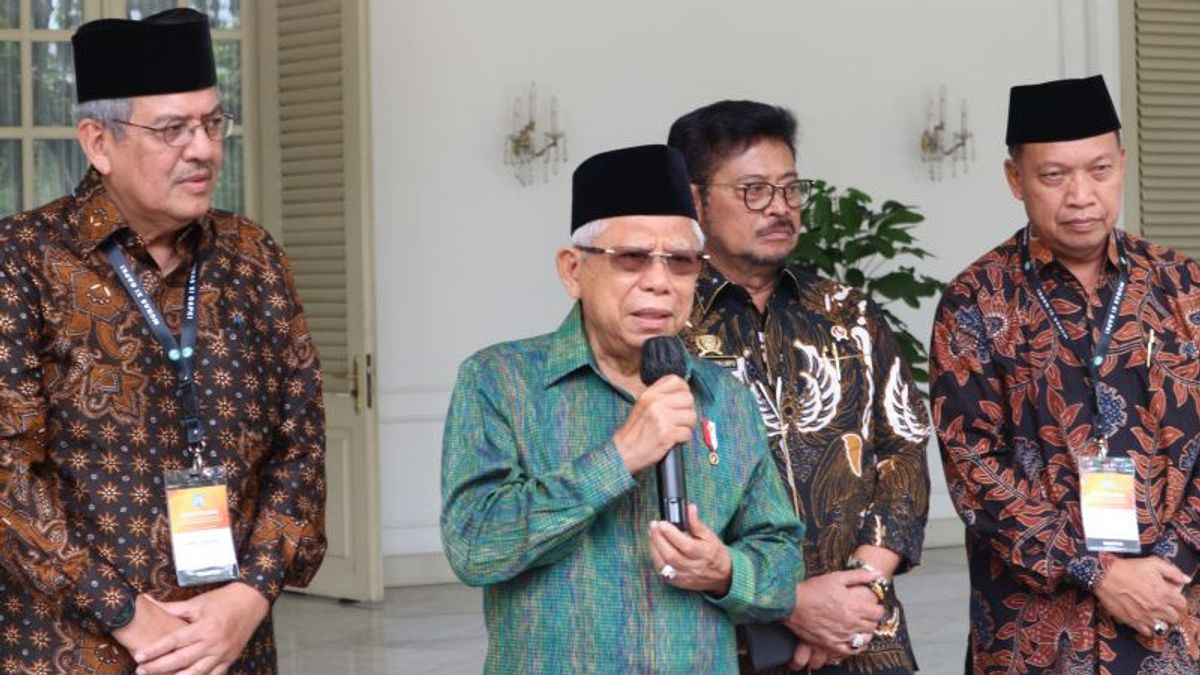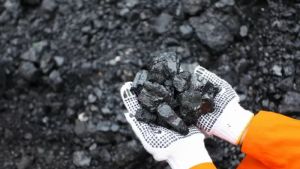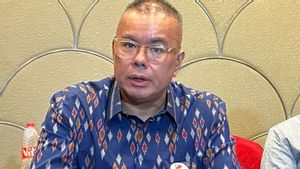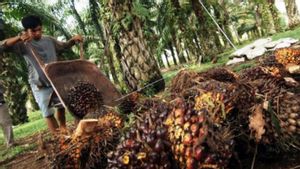JAKARTA - Vice President (Wapres) Ma'ruf Amin said the palm oil industry and its derivative products will still be an important pillar for the national economy.
"I have confidence that in the future the palm oil industry will remain an important pillar for the national economy," said Ma'ruf Amin as quoted from Antara, Friday, March 3.
Ma'ruf conveyed this when opening the 11th National Conference of the Association of Indonesian Palm Oil Producers (GAPKI) in 2023 which was also attended by Minister of Agriculture Syahrul Yasin Limpo, Chairman of GAPKI Joko Supriyono, and other relevant officials.
Currently, he said, the palm oil industry is one of the sources of state revenue.
In 2022, export foreign exchange from the palm oil industry will reach 39.28 billion US dollars and be the highest record compared to previous years.
"Oil palm is a gift from God Almighty to the Indonesian nation, for which we should be grateful. Indonesia's soil and climate conditions allow palm oil to thrive, so it can make a positive contribution to the economy," said the Vice President.
According to him, one-third of the world's vegetable oil needs are met from palm oil, and it is estimated that the demand for palm oil products for food or "oleofood" will reach US$106.16 billion in 2035, while for the oleochemical industry, it will reach US$190 billion.
"We must make good use of this potential. The palm oil industry is also able to provide abundant employment opportunities for approximately 16.2 million workers, both directly and indirectly, meaning that sustainable oil palm plantations are no longer an option, but a necessity," said Ma'ruf.
Therefore, the government continues to improve palm oil governance, including through the 2019-2024 National Action Plan for Sustainable Oil Palm Plantations.
"The targets to be achieved include increasing the capacity and capability of smallholders, finalizing land status and legalization, utilizing palm oil as renewable energy, and strengthening diplomacy to achieve sustainable oil palm plantations," said the Vice President.
These efforts can be realized more quickly if all stakeholders play their best roles, including the role of GAPKI as business actors.
VOIR éGALEMENT:
GAPKI chairman Joko Supriyono specifically highlighted the issue of payment for the difference between the selling price and the economic price of cooking oil (rafaksi) which had not been paid by the Ministry of Trade (Kemendag) in the amount of IDR 344 billion in the period 19-31 January 2022, saying that the verification process was still ongoing.
"It's being done because it has to be done by a third party. The third party is currently in the process of being appointed because this has already been done, but there are improvements. So, the point is that this is still waiting for the identification process and later there will be a recommendation from the Ministry of Trade and the new Ministry of Industry to the Fund Management Agency. The Oil Palm Plantation (BPDPKS) will pay," said Joko.
The English, Chinese, Japanese, Arabic, and French versions are automatically generated by the AI. So there may still be inaccuracies in translating, please always see Indonesian as our main language. (system supported by DigitalSiber.id)











